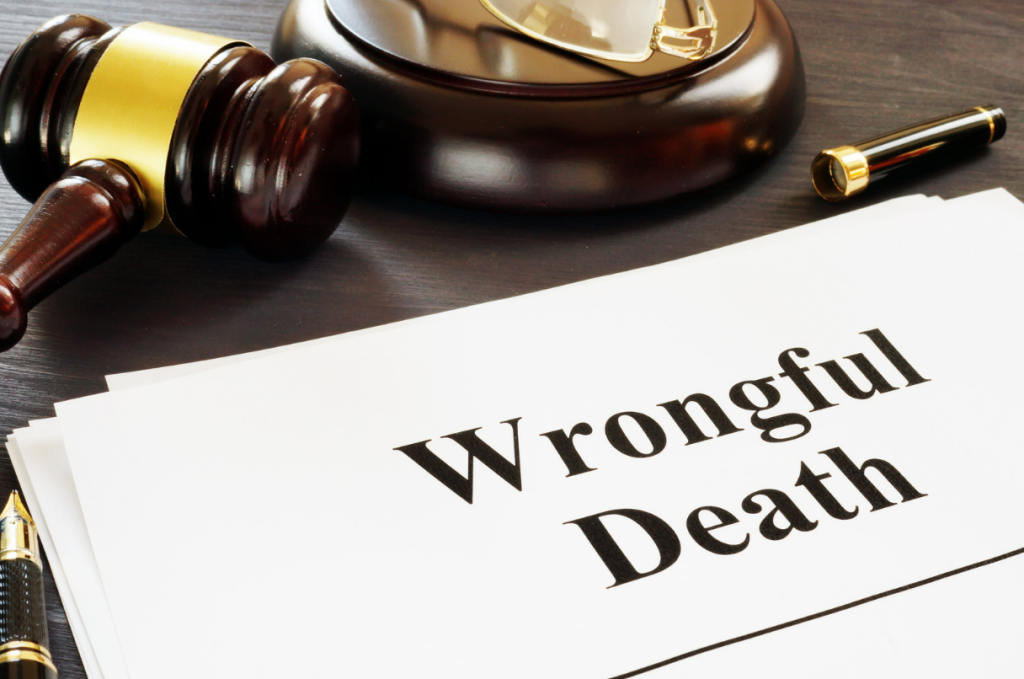Losing a loved one due to someone else’s negligence is heartbreaking. Along with grief, families often face financial burdens, from medical bills to funeral costs. In such cases, filing a wrongful death lawsuit can help secure justice and compensation.
Table of Contents
However, not everyone can file a claim. Each state, including Chicago, has specific laws that determine who has the legal right to sue and how compensation is distributed. Understanding these rules is crucial before taking legal action.
So, in this post, we will give you all the answers, ensuring you have the right information to navigate a wrongful death lawsuit effectively. Keep reading to learn more about your legal options.

Who Has the Legal Right to File a Wrongful Death Claim?
Each state has specific laws governing who can file a wrongful death lawsuit. In most cases, the personal representative of the deceased’s estate is responsible for bringing the claim on behalf of the family. This person is typically named in the deceased’s will. If no will exists, the court may appoint someone as the personal representative.
In many states, the following individuals have the right to file a wrongful death lawsuit:
- Spouse – A surviving spouse can file a claim in nearly all states.
- Children – Biological and adopted children are usually allowed to seek damages.
- Parents – Parents may file a claim if the deceased was a minor or had no spouse or children.
- Siblings and Extended Family – Some states allow siblings, grandparents, or other relatives to file if they are financially dependent on the deceased.
If multiple family members are eligible, the lawsuit is typically handled by a single representative, ensuring that compensation is distributed fairly.

What If There Is No Immediate Family?
The right to file may pass to other dependents in cases where the deceased had no spouse, children, or parents. Some states allow close relatives such as grandparents, stepchildren, or legal guardians to file if they can prove they relied on the deceased for financial or emotional support.
When no eligible family members exist, the executor of the estate may handle the wrongful death claim. The compensation in such cases often goes to the estate itself and is distributed according to state inheritance laws.
The Role of the Wrongful Death Lawyer
While no legal action can bring them back, a wrongful death lawyer plays a crucial role in helping families seek justice and financial stability. Their job goes beyond filing paperwork—they provide legal guidance, handle negotiations, and fight for fair compensation.
However, not all lawyers have the same level of experience and expertise. It’s essential to choose a local attorney who understands state laws and court procedures.
For instance, if the case is in Illinois, hiring a trusted Chicago Wrongful Death Lawyer is beneficial. They have in-depth knowledge of state-specific wrongful death laws, local court systems, and relationships with judges and insurers, which can significantly affect the outcome of the case.
What Compensation Can Be Recovered?
Wrongful death lawsuits seek to compensate surviving family members for both financial and emotional losses. The damages awarded can be divided into three main categories:
- Economic Damages
These cover direct financial losses resulting from the death, including:
- Medical expenses related to the deceased’s final injury or illness.
- Funeral and burial costs.
- Loss of income and future earnings.
- Loss of benefits, such as health insurance or retirement savings.
- Non-Economic Damages
These compensate for the emotional and personal losses suffered by surviving family members, such as:
- Loss of companionship, love, and emotional support.
- Pain and suffering endured by family members.
- Loss of parental guidance for minor children.
- Punitive Damages
In cases of gross negligence or intentional misconduct, courts may award punitive damages. Unlike other forms of compensation, these damages are not meant to cover financial losses but to punish the responsible party and deter similar actions in the future.
- The total compensation awarded in a wrongful death case depends on several factors, including:
- Younger individuals may have higher projected lifetime earnings.
- Lost wages and financial contributions to dependents are considered.
- Courts assess the emotional and financial impact on surviving family members.
Since every case is unique, consulting an experienced wrongful death attorney can help families understand whether punitive damages apply and how much compensation they may be entitled to receive.

How Long Do You Have to File a Wrongful Death Lawsuit?
Each state has a statute of limitations that sets a deadline for filing a wrongful death claim. In most states, families have two years from the date of death to file a lawsuit.
However, there are exceptions. If the death was caused by medical malpractice or involved a government entity, the time limit may be shorter. In some cases, the deadline may be extended if the cause of death is not immediately known.
Missing the deadline can result in losing the right to seek compensation, which is why it is important to act quickly. A wrongful death attorney can help ensure the case is filed on time.
Conclusion
Losing a loved one is heartbreaking, but legal action can provide closure, financial security, and accountability for those left behind. So, never hesitate to seek legal guidance if you believe negligence played a role in your loved one’s passing. Taking the right steps now can help you move forward while holding the responsible party accountable.


